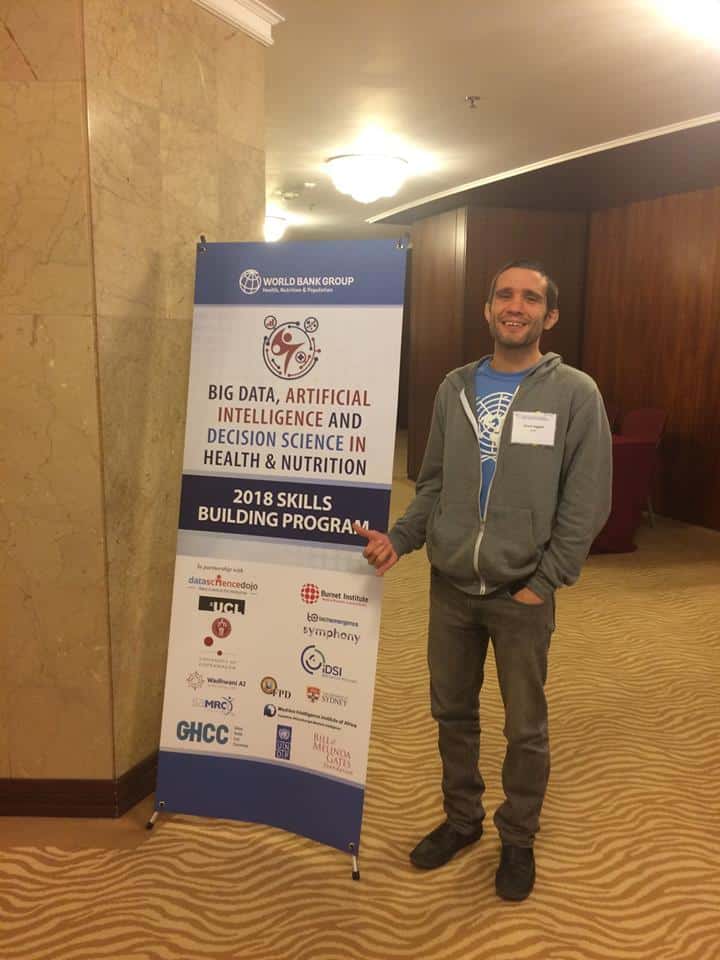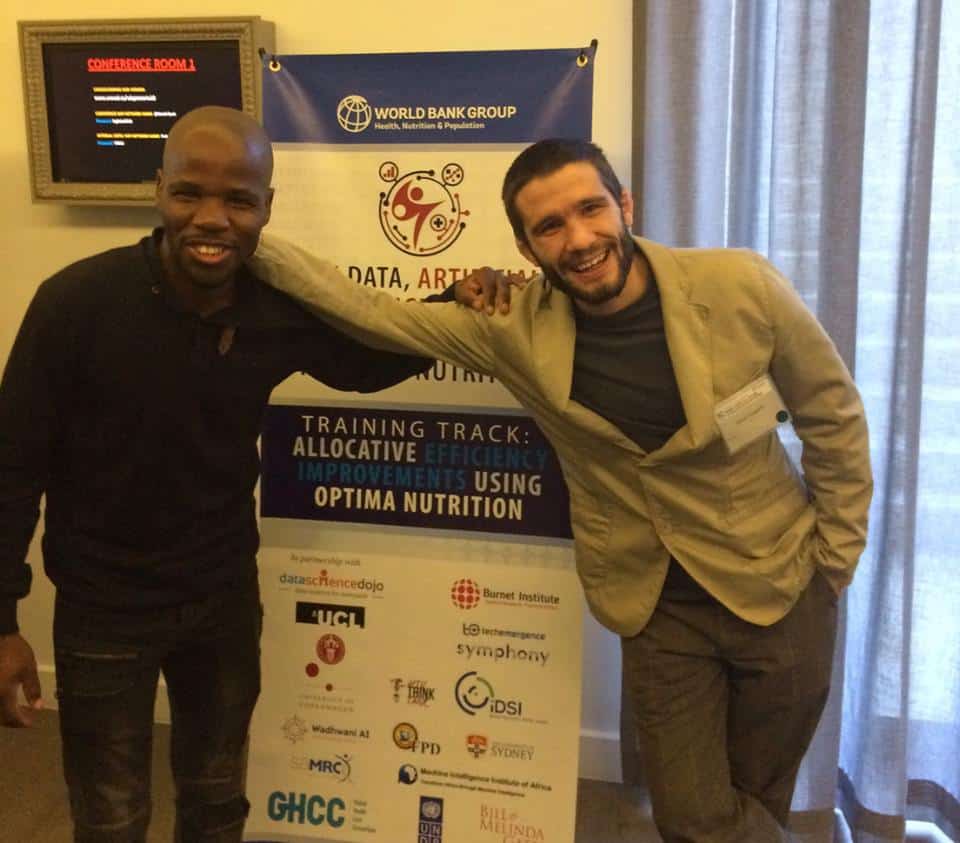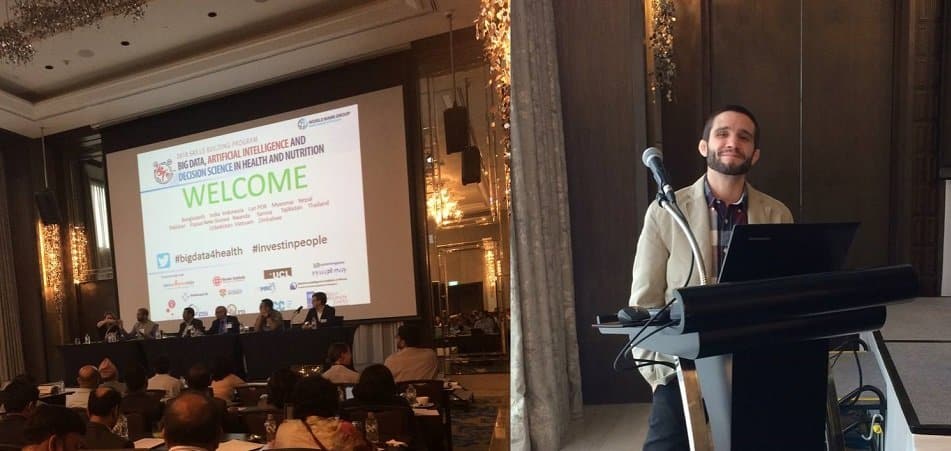Event Title: Big Data, Artificial Intelligence and Decision Science in Health and Nutrition
Event Host: the World Bank Group
Date: September 10, 2018; September 24, 2018; October 1, 2018
Team Member: Daniel Faggella, Emerj Founder and CEO
What Happened
For those who aren’t familiar with it, the World Bank provides loans to countries to fund the betterment of their economic conditions, but it also runs educational initiatives to help educate leaders in those countries. As it turns out, artificial intelligence is getting on the radar of leaders at the World Bank. In fact, the Decision and Delivery Science Lead at the World Bank in Washington DC, which is their headquarters, has been on our email list for two years.
When she needed to commission a company to do research on the impact of artificial intelligence on low- and middle-income countries, she decided to reach out to us immediately. We provide the World Bank with research from 20 interviews with AI PhDs who also have a background in healthcare. The insights we garnered from those PhDs involved the kinds of technologies that were going to become accessible to low- and middle-income countries and how those countries. Specifically, they discussed what kinds of tools have very low integration costs and are potentially able to be adopted even today to deliver some degree of value.

My job was to present that research in three different locations to IT- and health minister-type folks in Romania, where people from all over Eastern Europe attended. I also presented in Thailand and South Africa, where people from all across Asia and Africa attended respectively. I tweaked the presentation slightly for each audience, but for the most part, my job was to present the landscape of AI capabilities that might be accessible to low- and middle-income countries and to make some realistic recommendations around what technologies might be difficult to access for them right now due to the data infrastructure and talent requirements.
In addition, I helped facilitate brainstorm and workshop groups with different delegates from these different countries. In essence, we got to do breakout sessions and help delegates from each country think about different hypothetical AI use cases, the data that might be required, and the results they might be optimizing for. During these sessions, we went into depth about what aspects of data science and AI are relevant to them.
These events had many speakers who were policy experts and AI PhDs. There were speakers presenting use cases of existing AI applications in public health, and they had me come in to translate the cutting edge of what’s possible and what’s working with regards to AI to a non-technical audience of government leaders, similar to what happened at the United Nations in Geneva. This is a common theme among why we get called on and why we get paid here at Emerj.
What We Learned
- Romania, Thailand, Cambodia, Zimbabwe, South Africa all have different initiatives that matter to them, and they’re also all working with different levels of resources in terms of the impact of health matters on the economic well-being of a country and the well being of the citizens of a country. In South Africa, for example, HIV-AIDS is a very big deal. It’s of paramount importance in South Africa to look at adherence to HIV treatment and preventative measures for the spread of that disease, which is less so the case in Romania. In addition, many of the medical stations in countries like Kenya and Zimbabwe are tracking things on paper. They don’t have any kind of real data infrastructure at all. Putting forth very experimental cutting-edge AI technology in a situation like that doesn’t make sense. Needs vary from country to country.

- After conducting around 20 interviews, I got the sentiment that no one has hard answers for how to build a robust data infrastructure for healthcare. This is a serious problem, and progress is going to be made on it bit by bit. There are no countries that have mastered this, and there are no PhDs who have a clean step-by-step plan to implement this. I think the high-income nations like Switzerland and Singapore will figure out some of the core fundamentals of data infrastructure.
- Another sentiment came through from the interviews, that a country should think about rules and regulations that keep data private and secure while also allowing researchers to access that data for efforts that might promote the well-being of its citizens.
- It’s important to ensure that systems can be integrated with the cutting edge technologies of the day, to make sure that developers don’t build closed systems that can never leverage open source tools, for example. They want to build something that will work with modern tools as they’re developed. The advice I got from the PhD folks was that if one wants to know what the most cutting-edge, modern tools are, one should go to events and network with people who work with profitable healthcare systems that are already doing AI.















